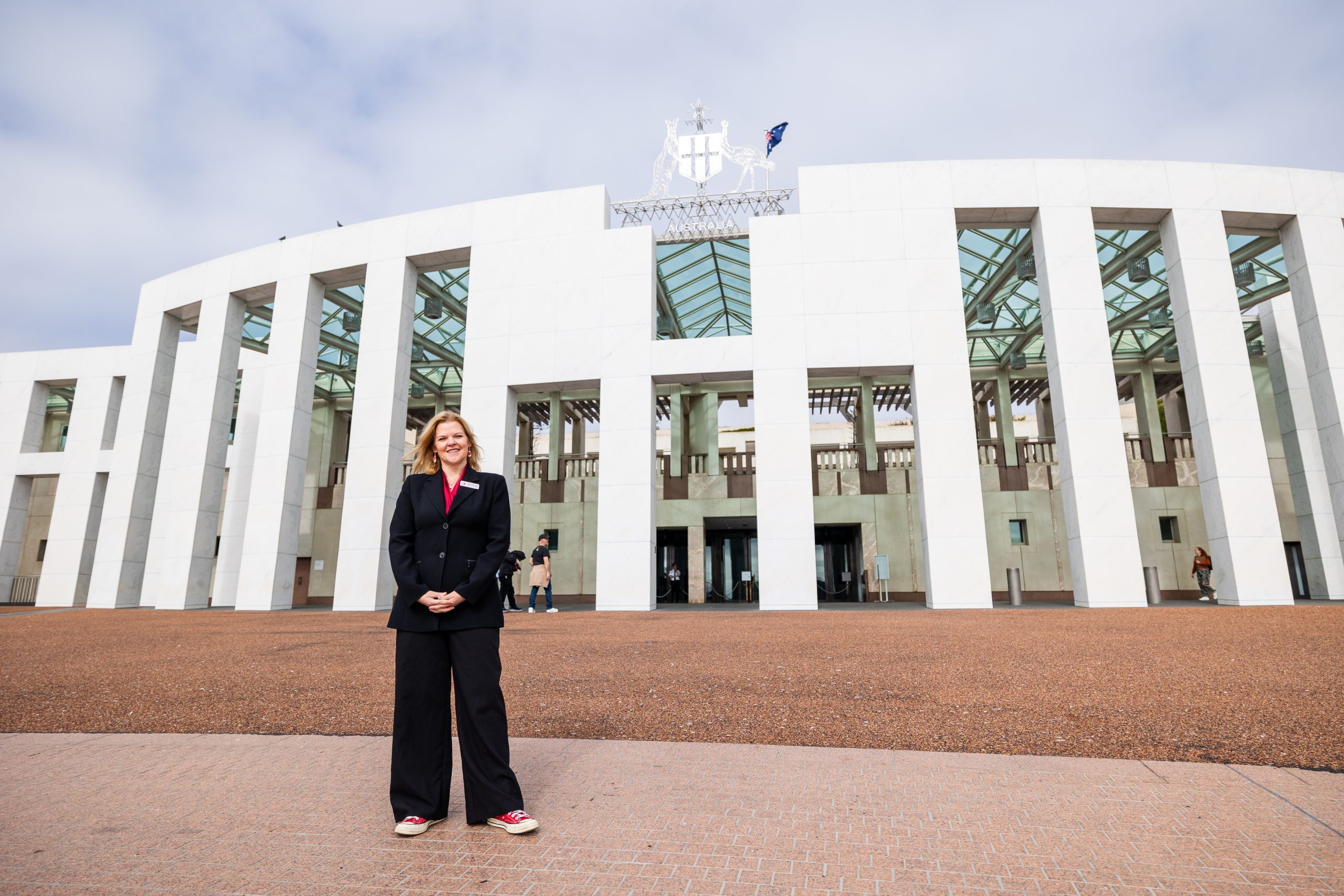By Sophie Harrington, CEO of the National Organisation for Fetal Alcohol Spectrum Disorders (NOFASD).
This article was originally published in Women’s Agenda.
Australia is at a critical point on fetal alcohol spectrum disorder (FASD). After decades of advocacy from families, clinicians, researchers, and organisations, awareness of the hidden disability is higher than ever in 2025.
But despite progress, more education, reform and investment are needed to cement lasting change.
FASD is caused by alcohol exposure at any point during a pregnancy. The impact is a lifelong physical brain-based disability, which is often hidden, misdiagnosed or missed altogether.
People with FASD have unique strengths and challenges. Some of the challenges include difficulties with learning, memory, impulse control, sensory processing, and emotional regulation. People who live with FASD are at significantly higher risk of experiencing mental ill health, substance use disorders, physical health problems, disengagement from school, and involvement with the justice system.
But with diagnosis, the right supports and understanding, people with FASD can thrive.
A new landmark study, published by the University of Sydney in June, estimated that up to one in 28 Australians (3.64 per cent) may be living with FASD – that’s one child in every classroom, or two adults on a bus during peak hour.
Yet, despite being the nation’s leading non-genetic, lifelong developmental disability, most Australian psychologists, social workers, speech therapists and occupational therapists have not been trained to recognise or support people with FASD. This contributes to high rates of underdiagnosis.
In 2021, the Every Moment Matters campaign, funded by the Australian Government and delivered by the Foundation for Alcohol Research and Education (FARE), was launched, with the message that no amount of alcohol is safe during pregnancy.
The campaign aims to reach both the general public and people who are most at risk, and provides much-needed training to health professionals. The Strong Born campaign, led by the National Aboriginal Community Controlled Health Organisation (NACCHO), provides culturally appropriate information to Aboriginal and Torres Strait Islander peoples.
An evaluation report released this year showed Every Moment Matters had been effective in changing behaviours. An estimated 16,554 fewer women drank alcohol while pregnant across the reporting period, thanks to Every Moment Matters.
Another step forward this year was the release of the updated Australian Guidelines for Assessment and Diagnosis of Fetal Alcohol Spectrum Disorder (FASD).
The guidelines, which have been approved by the National Health and Medical Research Council, support health professionals to assess and diagnose people with FASD. They build on the previous diagnostic tool by incorporating the latest evidence and strengthening the voices of people with living experience of FASD and Aboriginal and Torres Strait Islander people.
The Australian Department of Health and Aged Care can be applauded for their commitment to the implementation of the National FASD Strategic Action Plan.
However, the profound and far-reaching impacts of FASD remain under-recognised, with national alcohol and other drugs strategies leaving significant gaps in prevention, diagnosis and care. These gaps perpetuate health and disability justice inequalities and systemic disadvantage for individuals and their families.
The human cost is high: the families and adults we support at NOFASD Australia face daily struggles — repeated school suspensions, unmet needs in classrooms, and parents unfairly judged for their children’s behaviours. Too often, they feel unheard, misunderstood, and dismissed.
To close these gaps, the Australian Government must continue its commitment to implementing the National FASD Strategic Action Plan in full. FASD training and strategies must be implemented in cross-sector strategies including for the education, social services, out of home care and justice system reforms and priorities.
Universal screening for prenatal alcohol exposure at the earliest stages of pregnancy, continued investment in public awareness campaigns and culturally safe education programs tailored to at-risk communities are essential.
People with lived and living experience of FASD need targeted FASD-informed advice and navigational support, and they must be included in decision-making at both organisational and government levels.
To ensure equity and inclusion for people living with FASD, this lifelong disability must be included on the Australian Government’s List of Recognised Disabilities. Without formal recognition, there will continue to be inconsistent access to funding, services and individualised supports throughout people’s lives.
Through education, policy reform and sustained investment, we can prevent harm before it occurs.
Alongside many others, our organisation has championed these calls for over 25 years. Now, with growing awareness and evidence, we face a pivotal opportunity and an urgent responsibility to act. Australia must seize this moment to change the trajectory for the up to one million Australians who live with FASD, and to prevent future generations from experiencing this alcohol related harm.







